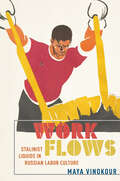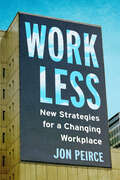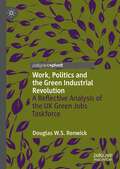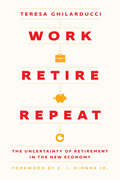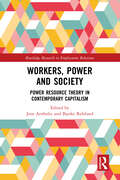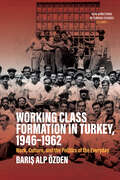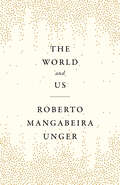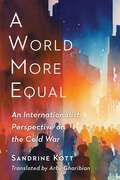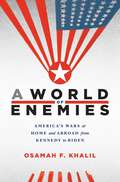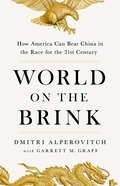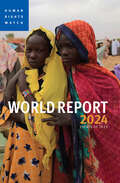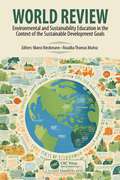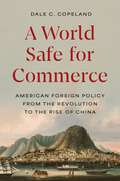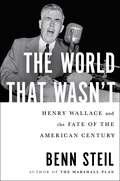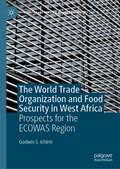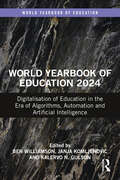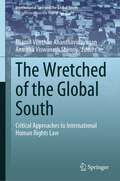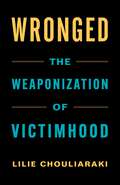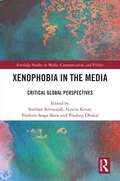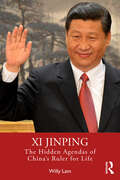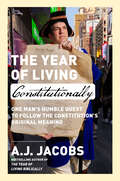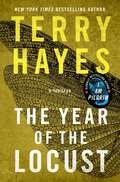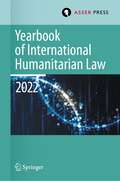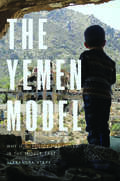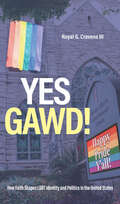- Table View
- List View
Work Flows: Stalinist Liquids in Russian Labor Culture (NIU Series in Slavic, East European, and Eurasian Studies)
by Maya VinokourWork Flows investigates the emergence of "flow" as a crucial metaphor within Russian labor culture since 1870. Maya Vinokour frames concern with fluid channeling as immanent to vertical power structures—whether that verticality derives from the state, as in Stalin's Soviet Union and present-day Russia, or from the proliferation of corporate monopolies, as in the contemporary Anglo-American West. Originating in pre-revolutionary bio-utopianism, the Russian rhetoric of liquids and flow reached an apotheosis during Stalin's First Five-Year Plan and re-emerged in post-Soviet "managed democracy" and Western neoliberalism.The literary, philosophical, and official texts that Work Flows examines give voice to the Stalinist ambition of reforging not merely individual bodies, but space and time themselves. By mobilizing the understudied thematic of fluidity, Vinokour offers insight into the nexus of philosophy, literature, and science that underpinned Stalinism and remains influential today. Work Flows demonstrates that Stalinism is not a historical phenomenon restricted to the period 1922-1953, but a symptom of modernity as it emerged in the twentieth century. Stalinism's legacy extends far beyond the bounds of the former Soviet Union, emerging in seemingly disparate settings like post-Soviet Russia and Silicon Valley.
Work Less: New Strategies for a Changing Workplace
by Jon Peirce“Peirce tells the intriguing story of the battle for shorter hours … and why now is finally the moment for a breakthrough that would give us all more of the precious gift of time.” — LINDA McQUAIG, journalist and authorYou can’t have a healthy economy with an unhealthy work force. Work Less proposes ways to reduce work hours and keep workers happier, healthier, and more productive.Recent years have revealed just how stressed out many workers are. While the trend to longer hours has been developing for several decades, the trend’s effects have been aggravated during the pandemic by the growing use of Zoom and other new technologies for meetings with clients, customers, and co-workers.Exhausted and fed up, today’s workers are starting to insist on shorter hours and greater flexibility as to where they do their work. There is growing consensus that the forty-hour week, the norm since the 1940s, has outlived its usefulness. And there is an urgent need for new work schedules that adequately reflect the far greater intensity of work today, as well as the greater family demands on a labour force made up of almost fifty percent women, who bear the brunt of domestic duties.Work Less offers practical scheduling suggestions to employers and workers and numerous policy options for government policy-makers to improve working conditions.
Work, Politics and the Green Industrial Revolution: A Reflective Analysis of the UK Green Jobs Taskforce
by Douglas W.S. RenwickIn 2020, UK Prime Minister Boris Johnson launched The Green Jobs Taskforce, which extended and articulated the green jobs policy of his government and its position within conservative political ideology. This book critically highlights gaps in the political and business decision-making of his Taskforce, most notably on: the limited role of employers and HRM associations in skills building for staff in non-polluter industries (solar and wind); issues of a fair and just transition for workers losing jobs in the polluter industries (fossil fuels); and the lack of employee voice in both work arenas. The overtly pro-conservative and political nature of this UK Taskforce is also analyzed, which occurs and operates in opposition to British trade unions and the wider labor movement, by not prioritizing the just transition, alongside the extensive skills, training and passporting requirements that British workers need to gain decent, green jobs.This book is distinctive in offering the first in-depth analysis and critique of the UK Green Jobs Taskforce, in examining this Taskforce using conservative political ideas, and by critiquing it too. Little academic literature is available globally on the business impact and analysis of UK governmental sustainability policy, and this study can provide wider learning points, lessons and implications for other green job plans being formed and enacted in the EU, USA and other countries. It will be of great interest to academics and students of sustainability, HRM, organizational behavior, organization studies and employment relations.
Work, Retire, Repeat: The Uncertainty of Retirement in the New Economy
by Teresa GhilarducciA damning portrait of the dire realities of retirement in the United States—and how we can fix it. While the French went on strike in 2023 to protest the increase in the national retirement age, workers in the United States have all but given up on the notion of dignified retirement for all. Instead, Americans—whose elders face the highest risk of poverty compared to workers in peer nations—are fed feel-good stories about Walmart clerks who can finally retire because a customer raised the necessary funds through a GoFundMe campaign. Many argue that the solution to the financial straits of American retirement is simple: people need to just work longer. Yet this call to work longer is misleading in a multitude of ways, including its endangering of the health of workers and its discrimination against people who work in lower-wage occupations. In Work, Retire, Repeat, Teresa Ghilarducci tells the stories of elders locked into jobs—not because they love to work but because they must. But this doesn’t need to be the reality. Work, Retire, Repeat shows how relatively low-cost changes to how we finance and manage retirement will allow people to truly choose how they spend their golden years.
Workers, Power and Society: Power Resource Theory in Contemporary Capitalism (Routledge Research in Employment Relations)
by Jens Arnholtz Bjarke RefslundThe book addresses how power and power resources remain important analytically as well as empirically dimensions for analysing contemporary capitalism. It provides a theoretical framework for studying, understanding, and explaining changes in the world of work and how that leads to changes in contemporary capitalist societies. Changes in the world of work are closely related to increasing inequality, growing social unrest, and societal polarisation. Hence the book seeks to deepen our understanding of how developments in the sphere of work have implication far beyond the direct impact on workers. The book focuses on how workers and unions utilise their various power resources to off-set the power advantage of employers and capital in the sphere of labour politics, which have crucial linkages with both cultural life, politics, and the market. Although workers’ and unions’ power and influence have been declining almost universally across the world, the argument in the book is that they still hold power resources that can challenge and sometimes alter outcomes in another direction than what employers and capital wants. Hence the theory can help understand the possibilities that workers and unions still have and how these resources affect the outcomes of the labour-capital struggle. A core contribution of the book is that it develops theoretical propositions about power resource theory, provides clear definitions of the core concepts as well as apply the power resource theory to a range of new or emerging topic fields like global value chains, minimum wages, and migrant workers.
Working Class Formation in Turkey, 1946-1962: Work, Culture, and the Politics of the Everyday (New Directions in Turkish Studies #1)
by Barış Alp ÖzdenThe political identities of the Turkish working class began a transformative journey that started during a period of industrialization following World War II and continued until the military interventions of 1960. Working Class Formation in Turkey addresses common, structural generalizations to recover the complex history of developing political, recreational, familial, residential, and work-related lives of Turkish workers. Drawing on a wide range of historical sources, this volume brings the concept of “everydayness” to the fore and uncovers the local contexts that fostered class solidarity, examines labor practices that fueled radicalism, and analyzes the shifting dynamics of industrial discipline that impacted working class identity and culture.
The World and Us
by Roberto Mangabeira Unger"A restless visionary striving to realize the highest aspirations of modernity itself."–New York TimesA radical re-envisioning of the human condition by the acclaimed Brazilian philosopherIn The World and Us, Roberto Mangabeira Unger sets out to reinvent philosophy. His central theme is our transcendence, everything in our existence points beyond itself, and its relation to our finitude: everything that surrounds us, and we ourselves, are flawed and ephemeral.He asks how we can live so that we die only once, instead of dying many small deaths; how we can breathe new life and new meaning into the revolutionary movement that has aroused humanity for the last three centuries, but that is now weakened and disoriented; and how we can make sense of ourselves without claiming for human beings a miraculous exception to the general regime of nature. For Unger, philosophy must be the mind on fire, insisting on our prerogative to speak to what matters most.From this perspective, he redefines each of the traditional parts of philosophy, from ontology and epistemology to ethics and politics. He turns moral philosophy into an exploration of the contest between the two most powerful contemporary moral visions: an ethic of self-fashioning and non-conformity, and an ethic of human connection and responsibility.And he turns political philosophy into a program of deep freedom, showing how to democratize the market economy, energize democratic politics, and give the individual worker and citizen the means to flourish amid permanent innovation.
A World More Equal: An Internationalist Perspective on the Cold War (Columbia Studies in International and Global History)
by Sandrine KottThe post–World War II period is typically seen as a time of stark division, an epochal global conflict between the United States and the Soviet Union. But beneath the surface, the postwar era witnessed a striking degree of international cooperation. The United Nations and its agencies, as well as regional organizations, international nongovernmental organizations, and private foundations brought together actors from conflicting worlds, fostering international collaboration across the geopolitical and ideological divisions of the Cold War.Diving into the archives of these organizations and associations, Sandrine Kott provides a new account of the Cold War that foregrounds the rise of internationalism as both an ideology and a practice. She examines cooperation across boundaries in international spaces, emphasizing the role of midsized powers, including Eastern European and neutral countries. Kott highlights how the need to address global inequities became a central concern, as officials and experts argued that economic inequality imperiled the creation of a lasting peace. International organizations gave newly decolonized and “Third World” countries a platform to challenge the global distribution of power and wealth, and they encouraged transnational cooperation in causes such as human rights and women’s rights. Assessing the failure to achieve a new international economic order in the 1970s, Kott adds new perspective on the rise of neoliberalism. A truly global study of the Cold War through the lens of international organizations, A World More Equal also shows why the internationalism of this era offers resources for addressing social and global inequalities today.
A World of Enemies: America’s Wars at Home and Abroad from Kennedy to Biden
by Osamah F. KhalilA sobering account of how the United States trapped itself in endless wars—abroad and at home—and what it might do to break free.Over the past half-century, Americans have watched their country extend its military power to what seemed the very ends of the earth. America’s might is felt on nearly every continent—and even on its own streets. Decades ago, the Wars on Drugs and Terror broke down the walls separating law enforcement from military operations. A World of Enemies tells the story of how an America plagued by fears of waning power and influence embraced foreign and domestic forever wars.Osamah Khalil argues that the militarization of US domestic and foreign affairs was the product of America’s failure in Vietnam. Unsettled by their inability to prevail in Southeast Asia, US leaders increasingly came to see a host of problems as immune to political solutions. Rather, crime, drugs, and terrorism were enemies spawned in “badlands”—whether the Middle East or stateside inner cities. Characterized as sites of endemic violence, badlands lay beyond the pale of civilization, their ostensibly racially and culturally alien inhabitants best handled by force.Yet militarized policy has brought few victories. Its failures—in Iraq, Afghanistan, US cities, and increasingly rural and borderland America—have only served to reinforce fears of weakness. It is time, Khalil argues, for a new approach. Instead of managing never-ending conflicts, we need to reinvest in the tools of traditional politics and diplomacy.
World on the Brink: How America Can Beat China in the Race for the Twenty-First Century
by Dmitri Alperovitch Garrett M. GraffThe leading national security expert who predicted Putin&’s intention to invade Ukraine argues that China&’s Xi Jinping is preparing to conquer Taiwan in the coming years—with dire stakes for America and the world if he is not deterred We are fully in the midst of Cold War II, this time with China. Taiwan is a new West Berlin, a perilous strategic flashpoint where localized events could trigger a devastating war between nuclear powers. But this outcome is far from inevitable. Laying out the grand strategy for the United States and allies to avoid this fate, the highly respected security analyst Dmitri Alperovitch reveals key actions that could enable America to win the race for the twenty-first century. This sharp, timely book is the essential blueprint for preventing a catastrophe.
World Report 2024: Events of 2023
by Human Rights WatchThe best country-by-country assessment of human rights.In this signature yearly report, Human Rights Watch will document and address human rights abuses in more than 100 countries, plus a keynote essay by executive director Tirana Hassan.
World Review: Environmental and Sustainability Education in the Context of the Sustainable Development Goals
by Marco Rieckmann Rosalba Thomas MuñozThe global landscape of education has been reshaped by the COVID-19 pandemic, revealing the various challenges faced by countries worldwide. This book provides a comprehensive exploration of Environmental and Sustainability Education (ESE) across different countries, offering unique insights into their histories, challenges, achievements, and future ESE needs. From Africa to Oceania, the book delves into the vital role of ESE in the context of the UN Sustainable Development Goals. It highlights the diverse national discourses and the flexibility required to deliver effective global education programs. ESE practitioners, researchers, and policymakers worldwide will find inspiration and invaluable perspectives in this book.
A World Safe for Commerce: American Foreign Policy from the Revolution to the Rise of China (Princeton Studies in International History and Politics #210)
by Dale C. CopelandAn Economist Biggest Book of the YearHow commerce determines whether America preserves the peace or goes to warWhen the Cold War ended, many believed that expanding trade would usher in an era of peace. Yet today the United States finds itself confronting not just Russia in Europe but China in the Indo-Pacific, Africa, and Latin America. Shedding new light on how trade both reduces and increases the risks of international crisis, A World Safe for Commerce traces how, since the nation&’s founding, the United States has consistently moved from peace to conflict when the commerce needed for national security is under threat.Dale Copeland shows how commerce pushes the United States and its rivals to expand their spheres of influence for access to goods even as they worry about provoking a breakdown in trade relations that could spiral into military conflict. Taking readers from the wars with Britain in 1776 and 1812 to World War II and the Cold War, he describes how America&’s leaders have grappled with this inherent tension, and why they have shifted, sometimes dramatically, from peaceful, mutually beneficial policies to coercion and force in order to increase control over vital trade and prevent economic decline.A World Safe for Commerce reveals how trade competition could lead the United States and China into full-scale confrontation. But it also offers hope that both sides can work to improve their overall trade expectations and foster the confidence needed for long-term peace and stability.
The World That Wasn't: Henry Wallace and the Fate of the American Century
by Benn SteilFrom the acclaimed economist-historian and author of The Marshall Plan comes a dramatic and powerful new perspective on the political career of Henry Wallace—a perspective that will forever change how we view the making of US and Soviet foreign policy at the dawn of the Cold War.Henry Wallace is the most important, and certainly the most fascinating, almost-president in American history. As FDR&’s third-term vice president, and a hero to many progressives, he lost his place on the 1944 Democratic ticket in a wild open convention, as a result of which Harry Truman became president on FDR&’s death. Books, films, and even plays have since portrayed the circumstances surrounding Wallace&’s defeat as corrupt, and the results catastrophic. Filmmaker Oliver Stone, among others, has claimed that Wallace&’s loss ushered in four decades of devastating and unnecessary Cold War. Now, based on striking new finds from Russian, FBI, and other archives, Benn Steil&’s The World That Wasn&’t paints a decidedly less heroic portrait of the man, of the events surrounding his fall, and of the world that might have been under his presidency. Though a brilliant geneticist, Henry Wallace was a self-obsessed political figure, blind to the manipulations of aides—many of whom were Soviet agents and assets. From 1933 to 1949, Wallace undertook a series of remarkable interventions abroad, each aimed at remaking the world order according to his evolving spiritual blueprint. As agriculture secretary, he fell under the spell of Russian mystics, and used the cover of a plant-gathering mission to aid their doomed effort to forge a new theocratic state in Central Asia. As vice president, he toured a Potemkin Siberian continent, guided by undercover Soviet security and intelligence officials who hid labor camps and concealed prisoners. He then wrote a book, together with an American NKGB journalist source, hailing the region&’s renaissance under Bolshevik leadership. In China, the Soviets uncovered his private efforts to coax concessions to Moscow from Chiang Kai-shek, fueling their ambitions to dominate Manchuria. Running for president in 1948, he colluded with Stalin to undermine his government&’s foreign policy, allowing the dictator to edit his most important election speech. It was not until 1950 that he began to acknowledge his misapprehensions regarding the Kremlin&’s aims and conduct. Meticulously researched and deftly written, The World That Wasn&’t is a spellbinding work of political biography and narrative history that will upend how we see the making of the early Cold War.
The World Trade Organization and Food Security in West Africa: Prospects for the ECOWAS Region (Contemporary African Political Economy)
by Godwin S. IchimiThis book explores the multilateral control of agro-economic spaces in West African developing countries through international trade, spearheaded by the World Trade Organization’s Agreement on Agriculture. Responding to growing food insecurity in the region, Ichimi here examines the web of intricacies in this arrangement by discussing some of the main international trade policies directly and indirectly impacting on food security in West Africa and critically engaging with empirical praxis as well as the theoretical underpinnings vis-a-vis multilateral strategies adopted for the amelioration of the crisis. In so doing, he expose how multilateral trading agreements under the auspices of the World Trade Organization produce negative outcomes for the food security status of a large and growing population in West Africa, privileging primary commodity production and export, maintaining the preference for food imports, and driving the pattern of agricultural investment towards an inexorable dependence of the sector on the dictates of the international market.
World Yearbook of Education 2024: Digitalisation of Education in the Era of Algorithms, Automation and Artificial Intelligence (World Yearbook of Education)
by Ben Williamson Janja Komljenovic Kalervo N. GulsonProviding a comprehensive, global overview of the digitalisation of education, the World Yearbook of Education 2024 examines the ways advanced digital technologies are transforming educational practices, institutions and policy processes.Establishing a critical research agenda for analysing the digitalisation of education, the carefully selected chapters in this collection interrogate the current impacts of new digital technologies, emerging controversies over emerging data practices and future implications of algorithmic systems, automated decision-making and AI in education. Organised into four sections, the contributions in the collection examine the following: The historical, scientific and technical foundations of contemporary digitalisation in education The political and economic dynamics that underpin the education technology industry and new platform models of education How algorithms, automation and AI support new modes of data-driven governance and control of education systems Controversies over the inequitable effects of digitalisation in education, and proposals for data justice, ethics and regulation This resource is ideal reading for researchers, students, educational practitioners and policy officials interested in understanding the future of digital technologies in education.
The Wretched of the Global South: Critical Approaches to International Human Rights Law (International Law and the Global South)
by Thamil Venthan Ananthavinayagan Amritha Viswanath ShenoyThe books aims to discuss and present an alternative epistemology of human rights, against the background of the globalization from below. The interdependent network of transnational networks, ranging from social movements, NGOs, and other groupings, questions the neoliberal paradigm and a particular set of human rights. This book wishes to transform this discourse on human rights and amplify the subaltern voices. The book also aims to highlight alternative practices of freedom that decenter human rights as a liberation discourse. Following Julia Suarez-Krabbe in “Race, Rights and Rebels”, the authors aim to amend to practices of freedom that center different orders of knowledge on subjectivity and agency. The proposed book, first, situates the problem of representation of the marginalized voices in contemporary legal and political discourse. Second, it offers critiques in theory, and, third, followed by alternative practices that emanate from marginalized localities. In particular, this book wishes to reflect upon alternatives rooted in legal and non-legal responses to address human rights grievances. In the end, this book envisages, along the lines of Frantz Fanon, to vision the possibility of the human by a new concept, addressing the concerns in various ways: As Fanon argued for “a new start”, “a new way of thinking”, and for the creation of a “new man”, it is pertinent to trigger a human rights project from the below.^
Wronged: The Weaponization of Victimhood
by Lilie ChouliarakiWhy is being a victim such a potent identity today? Who claims to be a victim, and why? How have such claims changed in the past century? Who benefits and who loses from the struggles over victimhood in public culture?In this timely and incisive book, Lilie Chouliaraki shows how claiming victimhood is about claiming power: who deserves to be protected as a victim and who should be punished as a perpetrator. She argues that even though victimhood has long been used to excuse violence and hierarchy, social media platforms and far-right populism have turned victimhood into a weapon of the privileged. Drawing on recent examples such as the overturning of Roe v. Wade, movements like #MeToo and Black Lives Matter, and the COVID-19 pandemic, as well as historical ones from the major wars of the twentieth century and the Civil Rights Movement, Wronged reveals why claims of victimization are so effective at reinforcing instead of alleviating inequalities of class, gender, and race. Unless we come to recognize the suffering of the vulnerable for what it is—a matter not of victimhood but of injustice—Chouliaraki powerfully warns, the culture of victimhood will continue to perpetuate old exclusions and enable further injuries.
Xenophobia in the Media: Critical Global Perspectives (Routledge Studies in Media, Communication, and Politics)
by Senthan Selvarajah Nesrin Kenar Ibrahim Seaga Shaw Pradeep DhakalThrough its global and critical perspectives, this book brings together knowledge, ideas, and tools to understand the problems and identify effective solutions, best practices and alternative approaches to combat xenophobia in the media and build tolerance and social cohesion. Although various studies have been conducted on the extent to which the media construct xenophobic discourse against immigrants and refugees and how they represent immigrants, there exists a research lacuna as to the dynamics of the xenophobia construction in the media, the effect of xenophobic discourse of the media and its function, the nexus between xenophobia construction of the media and the social, economic and political conditions, and the impact of the xenophobic discourse of the media on immigrants and host communities. This book adds knowledge and empirical evidence to fill this research gap. This book will be an important resource for journalists, scholars and students of media and communication studies, journalism, political science, sociology, and anyone covering issues of race and racism, human rights, immigration and refugees.
Xi Jinping: The Hidden Agendas of China's Ruler for Life
by Willy LamThis book examines the policy, ideology and politics of Xi Jinping, State President and General Secretary of the Chinese Communist Party (CCP) and China’s “ruler for life.” Through comparisons with former CCP leaders, including Deng Xiaoping, it assesses whether, having abandoned many of the key precepts of the Era of Reform and the Open Door, the conservative supreme leader’s restitution of Maoist standards might enable China to sustain economic growth and project hard and soft power worldwide. The book also examines whether the Communist Party will succeed in retaining the support of 1.4 billion Chinese in the face of unprecedented challenges in the economic and geopolitical arenas. It also provides a comprehensive picture of Xi’s rise to power; his AI-assisted and “legalistic” surveillance and control mechanisms; China’s evolving economic system; Xi’s foreign and national-security policies and the implications of the 20th Party Congress of October 2022 from both domestic and foreign perspectives. Being among the first books in English on the ambitious and multi-faceted agendas that Xi has laid out taking China up to the early 2040s, this will be an invaluable resource for students and scholars of Chinese studies, China-US relations, East Asian politics and Contemporary Asian history.
The Year of Living Constitutionally: One Man's Humble Quest to Follow the Constitution's Original Meaning
by A.J. JacobsThe New York Times bestselling author of The Year of Living Biblically chronicles his hilarious adventures in attempting to follow the original meaning of the Constitution, as he searches for answers to one of the most pressing issues of our time: How should we interpret America&’s foundational document?&“I didn&’t know how I learned so much while laughing so hard.&”—Andy BorowitzA.J. Jacobs learned the hard way that donning a tricorne hat and marching around Manhattan with a 1700s musket will earn you a lot of strange looks. In the wake of several controversial rulings by the Supreme Court and the on-going debate about how the Constitution should be interpreted, Jacobs set out to understand what it means to live by the Constitution.In The Year of Living Constitutionally, A.J. Jacobs tries to get inside the minds of the Founding Fathers by living as closely as possible to the original meaning of the Constitution. He asserts his right to free speech by writing his opinions on parchment with a quill and handing them out to strangers in Times Square. He consents to quartering a soldier, as is his Third Amendment right. He turns his home into a traditional 1790s household by lighting candles instead of using electricity, boiling mutton, and—because women were not allowed to sign contracts— feebly attempting to take over his wife&’s day job, which involves a lot of contract negotiations.The book blends unforgettable adventures—delivering a handwritten petition to Congress, applying for a Letter of Marque to become a legal pirate for the government, and battling redcoats as part of a Revolutionary War reenactment group—with dozens of interviews from constitutional experts from both sides. Jacobs dives deep into originalism and living constitutionalism, the two rival ways of interpreting the document.Much like he did with the Bible in The Year of Living Biblically, Jacobs provides a crash course on our Constitution as he experiences the benefits and perils of living like it&’s the 1790s. He relishes, for instance, the slow thinking of the era, free from social media alerts. But also discovers the progress we&’ve made since 1789 when married women couldn&’t own property.Now more than ever, Americans need to understand the meaning and value of the Constitution. As politicians and Supreme Court Justices wage a high-stakes battle over how literally we should interpret the Constitution, A.J. Jacobs provides an entertaining yet illuminating look into how this storied document fits into our democracy today.
The Year of the Locust: A Thriller
by Terry HayesTerry Hayes, author of the #1 global bestseller I Am Pilgrim, returns with this terrifying and eagerly awaited instant bestseller.If, like Kane, you&’re a Denied Access Area spy for the CIA, then boundaries have no meaning. Your function is to go in, do whatever is required, and get out again—by whatever means necessary. You know when to run, when to hide—and when to shoot. But some places don&’t play by the rules. Some places are too dangerous, even for a man of Kane&’s experience. The badlands where the borders of Pakistan, Iran, and Afghanistan meet are such a place—a place where violence is the only way to survive. Kane travels there to exfiltrate a man with vital information for the safety of the West—but instead he meets an adversary who will take the world to the brink of extinction. A frightening, clever, vicious man with blood on his hands and vengeance in his heart...
Yearbook of International Humanitarian Law, Volume 25: International Humanitarian Law and Neighbouring Frameworks (Yearbook of International Humanitarian Law #25)
by Heike Krieger Pablo Kalmanovitz Eliav Lieblich Stavros Evdokimos PantazopoulosVolume 25 of the Yearbook of International Humanitarian Law (IHL) sheds light on the interplay between IHL and other adjacent branches of international law. This Volume moves beyond the traditional preoccupation of examining IHL’s relations with international human rights law, the law on the use of force and international criminal law. Authors were invited to discuss, both in general and specific terms, doctrinally and theoretically, interactions between IHL and other neighbouring frameworks. Accordingly, this Volume is dedicated to exploring the interrelationship between IHL and other adjacent frameworks, such as international environmental law, international investment law, the law on defences to state responsibility, and counter-terrorism law.The Volume contains four articles dedicated to the subject of IHL and neighbouring frameworks. The Volume further features a Focus section on IHL controversies arising from Russia’s aggression against Ukraine, and ends, as usual, with a Year in Review section.The Yearbook of International Humanitarian Law is a leading annual publication devoted to the study of international humanitarian law. The Yearbook has always strived to be at the forefront of the debate of pressing doctrinal questions of IHL, and will continue to do so in the future. As this Volume demonstrates, it offers a space where IHL-related issues can be explored both from a doctrinal and a theoretical perspective. It provides an international forum for high-quality, peer-reviewed academic articles focusing on this crucial branch of international law.Distinguished by contemporary relevance, the Yearbook of International Humanitarian Law bridges the gap between theory and practice and serves as a useful reference tool for scholars, practitioners, military personnel, civil servants, diplomats, human rights workers, and students.
The Yemen Model: Why U.S. Policy Has Failed in the Middle East
by Alexandra StarkA close look at failed U.S. policies in the Middle East, offering a fresh perspective on how best to reorient goals in the region In this book Alexandra Stark argues that the U.S. approach to Yemen offers insights into the failures of American foreign policy throughout the Middle East. Stark makes the case that despite often being drawn into conflicts within Yemen, the United States has not achieved its policy goals because it has narrowly focused on counterterrorism and regional geopolitical competition rather than on the well-being of Yemenis themselves. She offers recommendations designed to reorient U.S. policy in the Middle East in pursuit of U.S. national security interests and to support the people of these countries in their efforts to make their own communities safe, secure, and prosperous.
Yes Gawd!: How Faith Shapes LGBT Identity and Politics in the United States (Religious Engagement in Democratic Politics)
by Royal G. Cravens IIIYes Gawd! explores the effects of religious belief and practice on political behavior among the LGBT community, a population long persecuted by religious institutions and generally considered to be non-religious. Royal Cravens deftly shows how faith impacts the politics of LGBT people. He details how the queer community creates, defines, and experiences spirituality and spiritual affirmation as well as the consequences this has for their identity, socialization, and political development. Cravens also demonstrates the mobilizing power of faith for LGBT people by contrasting the effects of participation in faith and secular communities on political activism. He explores how factors such as coming out, race, and LGBT-affirming churches influence political attitudes and behavior and explains how the development of LGBT politico-religious activism provides opportunities for LGBT people to organize politically. Ultimately, Cravens provides a cohesive account of how religion acts as a catalyst for and facilitator in the political development of LGBT people in the United States. In the process, he shows that there is room for both religion in LGBT communities and LGBT people in religious communities.
